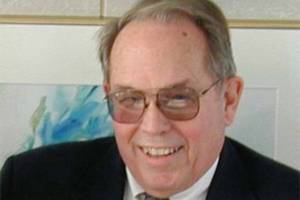Op-ed: The truth about school choice
Published 6:28 pm Friday, July 28, 2017
Randi Weingarten, president of the American Federation of Teachers, is paid not to tell the truth about school choice, and she deserves a raise.
In a speech last week, she purported to uncover the racist roots of the school-choice movement in “massive resistance” to school desegregation in the 1960s. She noted that segregationist politicians in Prince Edward County, Virginia, notoriously shut down the public schools rather than integrate, and set up a private school system that white kids could use tuition grants and tax credits to attend.
“Make no mistake,” Weingarten said, by way of prefacing not just a mistake, but a historically perverse smear, “this use of privatization coupled with disinvestment are only slightly more polite cousins of segregation.” Therefore pro school choice Education Secretary Betsy DeVos bears an ideological relation to George Wallace. Q.E.D.
Weingarten must know that no one in the school-choice movement looks for inspiration to Prince Edward County, even if she doesn’t let that stop her.
The intellectual seed of school choice was first planted in 1955 by Milton Friedman, the late Nobel Prize-winning libertarian economist never mistaken for a bigot. Friedman believed widely available vouchers would create a new dynamism in a state-dominated sector characterized by stasis.
The real-world political impetus for choice has been developing alternatives to rotten public schools for poor minority kids without other options.
The first notable law came in the late 1980s in Minnesota, championed by its Democratic governor, Rudy Perpich, and passed by its impeccably progressive legislature. It permitted parents to send their kids to school districts where they didn’t live with public money. The liberal American Prospect reported at the time that supporters of the reform included “1960s-era ‘open school’ progressives.”
Then came an experiment in Milwaukee to provide poor parents assistance to send their kids to private schools. Polly Williams, an African-American state assemblywoman from Milwaukee, became a high-profile advocate of choice. A Black Panther and the state chairman of Jesse Jackson’s presidential campaign, Williams was open about her “pro-black” views and even said in private that she didn’t much like white people. Harry Byrd, the Virginia champion of massive resistance, she was emphatically not.
From these beginnings, choice has burgeoned into the educational mainstream. Half of states have private school choice programs, and more than 40 charter school laws. They don’t aim to take white kids out of integrated schools, but to take minority kids out of underperforming de facto segregated schools.
Weingarten used to head the teachers union in New York, where her nemesis was Eva Moskowitz, the founder of the Success Academy Charter Schools. Moskowitz is a Democrat who happens to believe poor kids deserve better than what they get in the traditional public school system. According to the New York Post, her 41 schools enroll about 14,000 kids, almost all of them minorities. The demand is vast, with annual waiting lists exceeding 10,000 families.
The analogue for today’s choice programs aren’t the segregationist academies of Prince Edward County, but the efforts by black leaders to bypass a system long designed to deny their children a proper education. “An analysis of American history,” a recent piece in The Atlantic related, “indicates that the use of private means was a critical aspect to ensure quality education for African Americans legally excluded from access to public institutions.”
Today, black kids aren’t legally excluded from the best schools but are legally bound to failing ones. In her speech, Weingarten bizarrely compared defenders of the status quo — amply funded by union dues, and embedded in entrenched bureaucracies — to David, and the reformers fighting for every inch to Goliath.
These are the words of a woman who knows the other side has the moral high ground, and the only way she can try to regain it is through obfuscation and tortured rationalizations. Hers, in short, is the voice of someone who is losing — and deserves to.
Rich Lowry can be reached via e-mail: comments.lowry@nationalreview.com.




